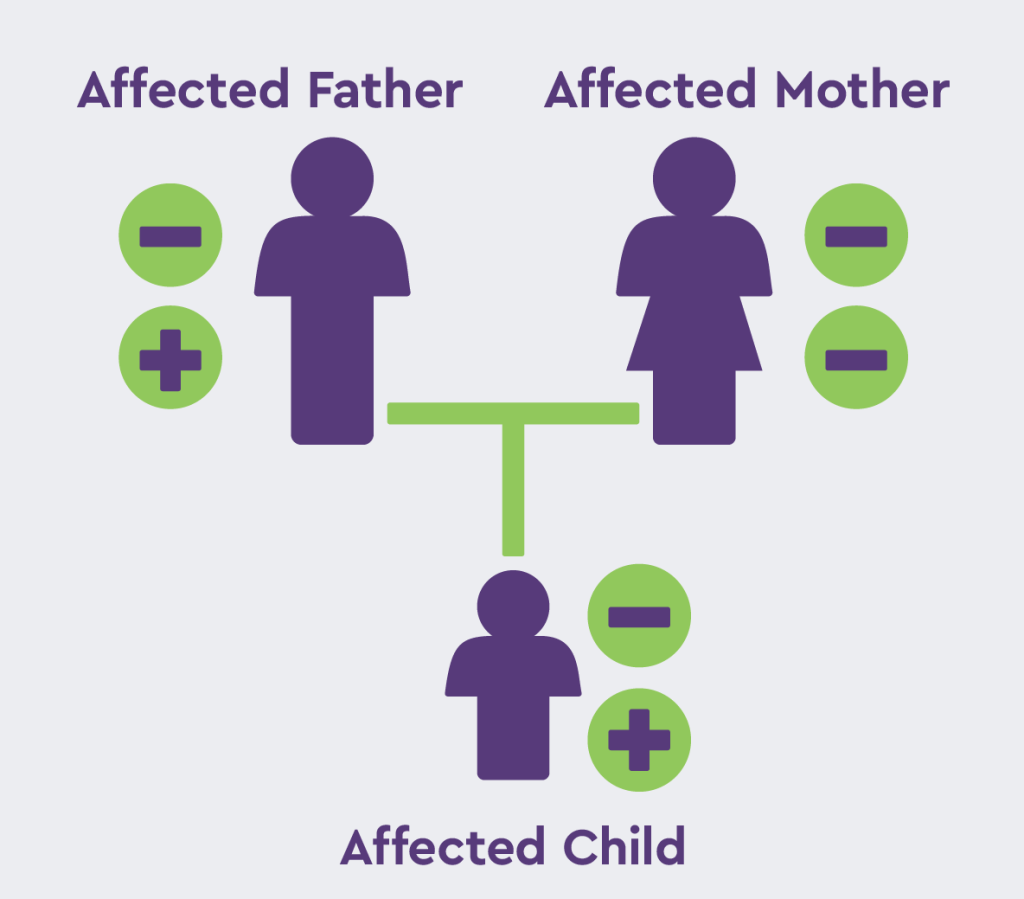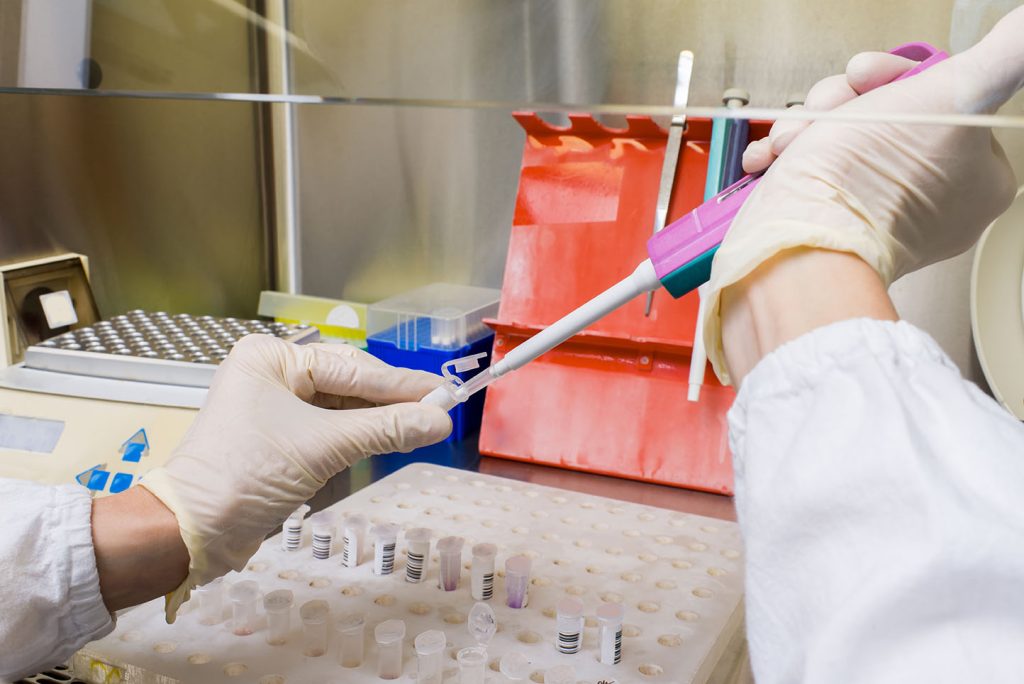Why Genetic Testing?
Researchers have identified hundreds of pathogenic variants in 11 different genes that can cause aortic disease, but are still working to identify more.
Clinical genetic testing is available for these genes. Because there are still more genes to identify, a negative test result does not rule out the possibility that aortic disease was caused by a genetic variant or risk factor.


Genetic Testing
Most genetic aortic conditions are inherited in a dominant manner, meaning that the patient received one copy of an abnormal gene from one parent. In some cases, the patient is the first person in their family to have this condition, caused by a random or sporadic genetic alteration at the time of conception. This is not caused by parental actions (alcohol use for example) and is not the fault of either parent.
These specialists can help you understand the risks and benefits, as well as the possible outcomes.
How to access genetic testing and evaluation
Genetic counselors and clinical geneticists are experts in genetic testing and evaluation. A primary care doctor, cardiologist, or surgeon may not have the most current information regarding genetic aortic conditions. Consulting with a certified genetic counselor or geneticist is recommended in coordination with genetic testing. These specialists can help you understand the risks and benefits, as well as the possible outcomes.
View our webinar focused on genetic testing and aortic disease to learn more.
IN-PERSON:
- You may obtain a referral from a primary care provider or other clinician. We recommend seeing a genetics specialist who has experience in cardiovascular or aortopathy genetics.
- The National Society of Genetic Counselors provides a searchable national directory. Tip: select “Cardiac-Aortic Aneurysm” for specialty.
- A comprehensive clinic directory is provided by The Marfan Foundation. These clinics specialize in genetic aortic conditions and are not limited to Marfan syndrome. Clinics will typically include specialists in genetics, cardiology (heart), ophthalmology (eyes), and orthopedics (bones and joints).
- As with all medical providers, research your genetics provider in advance. If you are not satisfied with the care or recommendations your practitioner provides, seek a second opinion.
TELEHEALTH:
- Genome Medical is a telehealth genetics service provider. They are in-network with many insurance plans for US based customers and offer a self-pay option.
- Commercial direct-to-consumer “ancestry” DNA testing and research study participation are not substitutes for clinical genetic testing and counseling.
- Please note: The John Ritter Foundation supports access to genetic counseling and testing through telehealth, however we do not endorse specific companies or benefit financially in any way from use of a specific laboratory or company.
The JRF funds cutting-edge research to advance the understanding of the genetic basis of thoracic aortic disease. We rely on medical providers and clinical genetic testing laboratories to provide vital genetic evaluation services to our community. The John Ritter Foundation for Aortic Health makes no recommendations, endorsements, warranties, or representations of any kind regarding the resources provided.
For assistance connecting with licensed medical providers and other useful resources, please contact us.
Postmortem Genetic Testing
Post-mortem genetic testing is an option after someone has died. Even if the death was many years ago, the medical examiner or coroner may have kept a sample from the autopsy. It is also an option to bank someone’s DNA after they have died, to save for testing at a later date. Thoracic aortic dissections can be genetic or “run in families.” Genetic testing may be important for other family members who are related by blood.
The National Society of Genetic Counselors provides practical information for families about post-mortem DNA banking and genetic testing.
A primary care doctor, cardiologist or surgeon may know everything there is to know about genetic testing. Genetic counselors and geneticists (doctors who specialized in genetic disease) can provide genetic counseling and testing and are experts who can guide you through this process.
Working with a Genetic Counselor is highly recommended. The American Board of Genetic Counseling and the National Society of Genetic Counselors both have tools you can use to search for a provider in your area.
You can ask a primary care provider, cardiologist, or other clinician for a referral to a genetic counselor or geneticist in your area.
You can contact us at The John Ritter Foundation, and we can help connect you.


